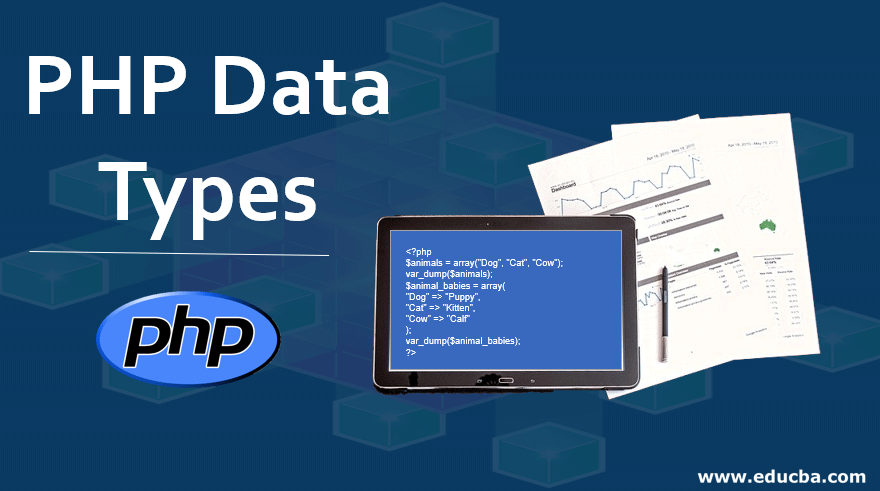Data Types in PHP

PHP supports several data types that define the type of values a variable can hold. The data types in PHP can be broadly categorized into the following:
Scalar Types:
Scalar types represent single values. PHP has four scalar data types:
Integer: Represents whole numbers without a decimal point.
$number = 42;Float (Floating-point number or Double): Represents numbers with a decimal point or in exponential form.
$price = 19.99;String: Represents a sequence of characters.
$name = "John";Boolean: Represents a truth value, either true or false.
$isStudent = true;Compound Types:
Compound types can hold multiple values or a combination of different data types.
Array: Represents an ordered map that can store multiple values.
$fruits = array("Apple", "Banana", "Orange");Object: Represents an instance of a user-defined class.
class Car {
// Class properties and methods
}
$myCar = new Car();Special Types:
Special types handle special kinds of data or are used for specific purposes.
Resource: Represents a special type of variable that holds a reference to an external resource, such as a file handle.
$file = fopen("example.txt", "r");Null: Represents the absence of a value.
$noValue = null;Pseudo-types:
Pseudo-types are not actual data types but are used to indicate the expected type of a parameter or return value in a function declaration.
mixed: Indicates that a parameter or return value can have multiple data types.
void: Indicates that a function does not return a value.
function exampleFunction(mixed $param): void {
// Function code
}
Understanding data types is essential for writing robust and efficient PHP code. PHP is a loosely typed language, meaning you don't need to declare the data type explicitly; it is determined dynamically based on the assigned value. However, being aware of data types is crucial for avoiding unexpected behaviors and ensuring that your code handles data appropriately.
Thank you.